Neurorehabilitation – in the Best Hospitals
Here you will find most technologically advanced neurorehabilitation hospitals in the world
Focus of treatment:
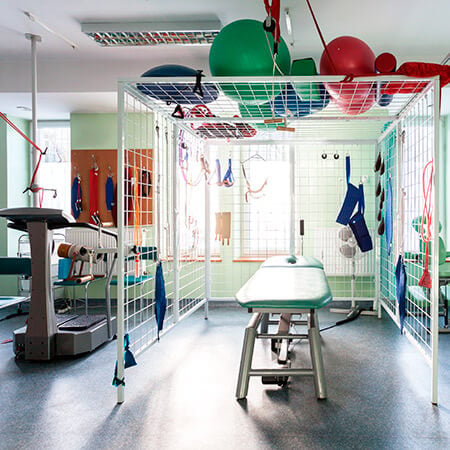
Department of Neurological Rehabilitation
The Department of Neurological Rehabilitation, which is well known for its experience in the neurological rehabilitation area since 1979, offers the patients a full range of medical services. Patients are receiving a treatment here according to the highest standards with the participation of neuropathologists and internists.
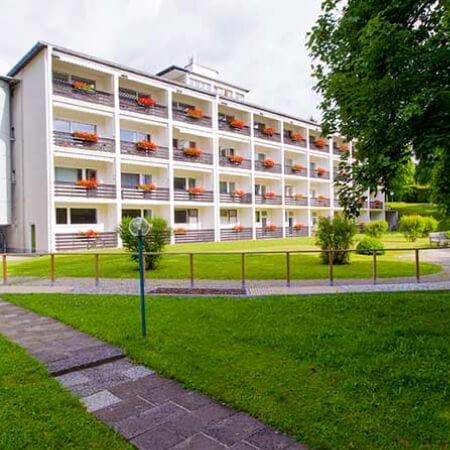
Department of Neurology and Neurological Rehabilitation
The Department of Neurology and Neurological Rehabilitation offers high quality emergency care and the full range of rehabilitation measures for patients with diseases of the nervous system. Particular attention is paid to early rehabilitation, which begins during the acute period of the disease, when the patient is in the inten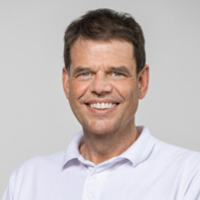
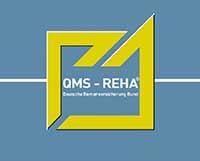
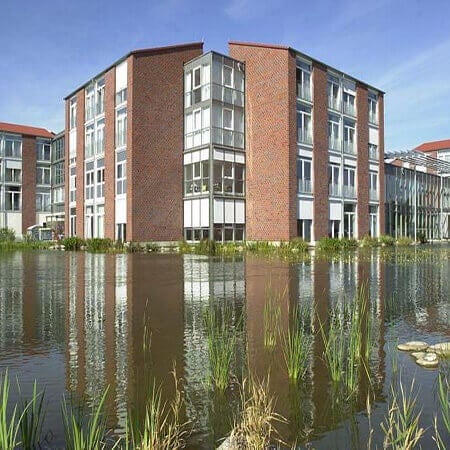
Department of Neurology
The Department of Neurology offers the comprehensive rehabilitation treatment for patients with diseases of the central and peripheral nervous system. The department's specialists mostly deal with the treatment of patients with lesions of the brain and spinal cord due to strokes, traumatic brain injuries, inflammatory and de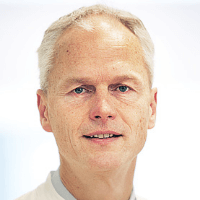


Neurological rehabilitation is a specialty of medicine and rehabilitation aimed at restoring bodily functions lost due to acute or chronic diseases of the nervous system. The neurological health conditions that require subsequent rehabilitation include diseases that lead to impaired coordination, mobility, communication, ability to independently solve everyday tasks, short- and long-term decision-making, and other complications.
Content
- Principles of neurological rehabilitation
- Methods of neurological rehabilitation
- Diseases that require neurorehabilitation after treatment
- Neurorehabilitation after stroke
- Neuropsychological rehabilitation
- Best hospitals for neurological rehabilitation
- How much does neurorehabilitation cost?
- How to request for neurorehabilitation abroad?
Principles of neurological rehabilitation
The priority task is to carefully diagnose the extent of damage to the organs and anatomical structures as a result of injuries and neurological disorders.
Such a comprehensive diagnostic examination of the body allows establishing the causes that led to neurological damage. Eliminating the cause of the neurological damage gives the patient a good chance of success in the rehabilitation program.
Once the cause of the disease has been eliminated, rehabilitation therapists elaborate a personalized neurological rehabilitation program. They work together with the specialists in different medical fields, including neurologists, neurosurgeons, orthopedists, vascular surgeons, physiotherapists, kinesiotherapists, and others.
The specialists at the neurological centers adhere to the following principles of work in their clinical practice:
- Starting neurological rehabilitation as early as possible (the success of the patient's recovery depends on the timely start of neurorehabilitation).
- Neurological rehabilitation must be systematic and uninterrupted.
- Doctors specializing in different medical disciplines must be involved in the neurorehabilitation process.
If the patient’s health condition allows it, active neurological rehabilitation should be started immediately. However, if neurorehabilitation cannot be started promptly, passive rehabilitation practices are applied. Passive techniques may include stimulation of different parts of the brain responsible for communicating with the outside world (hearing, vision, touch, movement).
The specialists at the clinics abroad practice a multidisciplinary approach. All processes in the body are interconnected, and complete neurological rehabilitation is impossible without understanding the peculiarities of the causes of diseases and the body's response to certain changes. That is why they evaluate the activity of both nervous and cardiovascular systems, the severity of the disorders, and only then choose the most effective rehabilitation methods for each particular case. Doctors daily monitor the dynamics of recovery processes to predict the results of the therapeutic procedures prescribed.
Neurorehabilitation is the complex of interventions aimed at restoration after development of neurological pathology.
A patient improves motor and cognitive functions (depending on what is affected).
Cost of outpatient neurological rehabilitation is from €343 per day. You can find other prices on the Booking Health website.
The best hospitals in Europe are:
- University Hospital Rechts der Isar Munich
- Helios Hospital Berlin-Buch
- University Hospital of Ludwig Maximilian University of Munich
- University Hospital Frankfurt-am-Main
- Clinic of Advanced Biological Medicine Frankfurt-am-Main
Methods of neurological rehabilitation
The neurological rehabilitation program consists of the whole complex of measures. First and foremost, the patients are examined by a cardiologist, physiotherapist, psychologist, and other medical specialists, which allows for a comprehensive assessment of the patient's state of health and selection of an effective neurorehabilitation program.
The methods of neurological rehabilitation itself vary and include activation of motor activity, work with the organs of speech and brain centers, physical therapy, and manual techniques. Thanks to an integrated approach to neurorehabilitation, doctors can enhance the results of treatment.
A special role is played by kinesiotherapy (muscular movement) that is actively implemented in neurological rehabilitation, for example, for spinal cord injuries and joint injuries, muscular dystrophies. This is a complex of measures, the purpose of which is to return the patient's motor skills, activate adaptation to everyday conditions and social activity. If the stage of the disease does not allow the patient to have active therapy, robotic simulators for passive exercising are used.
The work of an occupational therapist is of particular importance in the process of neurological rehabilitation as well. Such a therapy involves the repetition of daily tasks with therapeutic purposes.
In addition to conventional methods, some clinics offer innovative methods with the use of high technology:
- Art therapy (mostly art and theater).
- Music therapy (some studies have already shown the positive impact of music therapy included into the neurorehabilitation program).
- Horticultural therapy (exposure to nature and grounding have long been proved to positively affect the patients undergoing neurorehabilitation).
- Multisensory approach in neurorehabilitation.
Diseases that require neurorehabilitation after treatment
Neurological rehabilitation is aimed at helping patients with neurological health conditions:
- Brain and spinal cord injuries.
- Brain tumors and spinal cord tumors.
- Stroke.
- Cerebral palsy.
- Muscular dystrophies.
- Primary or secondary damage to the spinal cord, brain, and peripheral nervous system.
- Difficulty swallowing (dysphagia).
- Parkinson disease.
- Neurological syndromes.
- Hereditary neurological disorders.
If the patient already suffers from any neurological disorder that can no longer be prevented, the goal of neurological rehabilitation becomes either full or partial restoration of lost functions and socialization, as well as the prevention of worsening or recurrence of the disease. In the patients whose diseases have a progressive nature, neurorehabilitation serves for the correction of existing disorders and the prevention of their recurrence, improvement of the quality of life and activity in society.
Neurorehabilitation after stroke
Stroke is an acute disorder of cerebral circulation. A distinction is made between ischemic and hemorrhagic (intracerebral) strokes (depending on the nature of the disorder), as well as right and left brain strokes (depending on the area of lesion).
The most common consequences of stroke include partial or complete paralysis, speech disorders, and coordination problems. The earlier the patient is provided medical care, the fewer dysfunctions he will have. A special role in this matter is given to neurological rehabilitation. A competent and comprehensive medical program allows the patient to return to a realistically normal way of life.
Early recovery from stroke begins when there is no more threat to life, and lasts up to six months. It is during this period that the doctor can already assess the patient's state of health, all the consequences of stroke, and elaborate the most effective neurological rehabilitation program.
For post-stroke patients, not only motor, but also speech neurological rehabilitation is important. Speech therapists, who effectively cope with aphasia and other speech disorders, are involved in neurorehabilitation after stroke. Speech therapy in the neurological rehabilitation program in clinics includes specialized massage, restoration of cognitive activity, and mental health assessment.
After six months, the patient's state of health normalizes and the lost functions are partially restored. Therefore, the doctor adjusts the neurological rehabilitation program according to the patient's current health condition. This period lasts up to a year. Complete rehabilitation after stroke is possible in about 10% of cases.
Unfortunately, if the patient fails to restore some of the functions lost during the year, the changes are considered irreversible. In this case, the doctor's task is to help the patient get used to the new state of health and prevent the recurrence of stroke. Regardless of the result of rehabilitation, the patient should undergo inpatient treatment once a year.
Neuropsychological rehabilitation
Restoration of lost functions after stroke, spinal cord injuries, treatment of brain tumors, dysphagia, and other conditions, including untreatable ones (like Parkinson disease) is only possible with a comprehensive complex of neurorehabilitation activities, including neuropsychological rehabilitation.
Frequent problems appearing after the mentioned diseases are cognitive deficit, disorders of different kinds of executive functions, anxiety and depression due to speech disorders, and mental disorders. Neuropsychological rehabilitation is based on a precise analysis of the present symptoms. The specialists thoroughly check such factors as attention, perception, memory, planning, problem solving, and stress tolerance.
The specific neuropsychological rehabilitation program is selected depending on the following indicators:
- Patient's age.
- Severity of the disease.
- Effectiveness of conducted treatment.
- When rehabilitation measures started.
- Patient's mental status.
The neuropsychologist's tasks in the process of neurological rehabilitation are the clarification of diagnosis (determination of the form and degree of impairment and preservation of mental functions) and the development of a plan for both corrective and restorative sessions, as well as its coordination with the multidisciplinary team of specialists.
Best hospitals for neurological rehabilitation
Specialists abroad know how important early and intensive rehabilitation is in cases of stroke, brain injuries, spinal cord injuries, and other diseases affecting the nervous system. That is why doctors in the best clinics abroad focus on the recovery of all lost functions in the motor system, speech and cognition in patients.
Specialists in internal medicine and rehabilitation, neurologists, physiotherapists, psychologists, speech therapists work hand in hand in clinics abroad, and therefore they can offer comprehensive rehabilitation with the use of modern methods and intensive forms of therapy. Doctors do everything in their power to enable patients to return to an active social and, if possible, professional life.
Here are some of the best clinics for undergoing neurological rehabilitation abroad:
- Neurological Rehabilitation Clinic Godeschoehe Bonn.
- Neurological Rehabilitation Clinic Schmieder Clinics Heidelberg.
- St. Mauritius Therapieklinik Meerbusch.
- Maternus Rehabilitation Clinic Bad Oeynhausen.
- Rehabilitation Clinic Benedictus Krankenhaus Feldafing.
You can learn more about the best clinics for neurorehabilitation on the Booking Health website.
How much does neurorehabilitation cost?
The cost of the rehabilitation course depends on the length of the patient's stay and the set of measures neurorehabilitation requires.
The average prices for different types of neurorehabilitation are as follows:
- The price of rehabilitation for spinal cord injuries starts at 1,133 EUR.
- The price of Phase B rehabilitation starts at 758 EUR.
- The price of Phase C rehabilitation starts at 678 EUR.
- The outpatient neurological rehabilitation costs 343 EUR per day.
Some services are provided only in conjunction with the other ones. Therefore, the final cost may differ from the average prices when you contact a specific medical center.
If you know the type of rehabilitation you need, you can see how much it costs in different clinics abroad on the Booking Health website.
How to request for neurorehabilitation abroad?
With Booking Health, you can easily choose a clinic, undergo diagnostics, and start your neurorehabilitation.
Booking Health has been successfully helping people with neurological disorders receive rehabilitation abroad. The organization of neurorehabilitation in leading clinics abroad is our specialty. Booking Health will take care of all the organizational issues, starting from submitting your request to the clinic and up to the completion of the neurorehabilitation.
Please leave your request on the Booking Health website, and it will be processed as soon as possible.
Authors: Dr. Vadim Zhiliuk, Dr. Sergey Pashchenko

